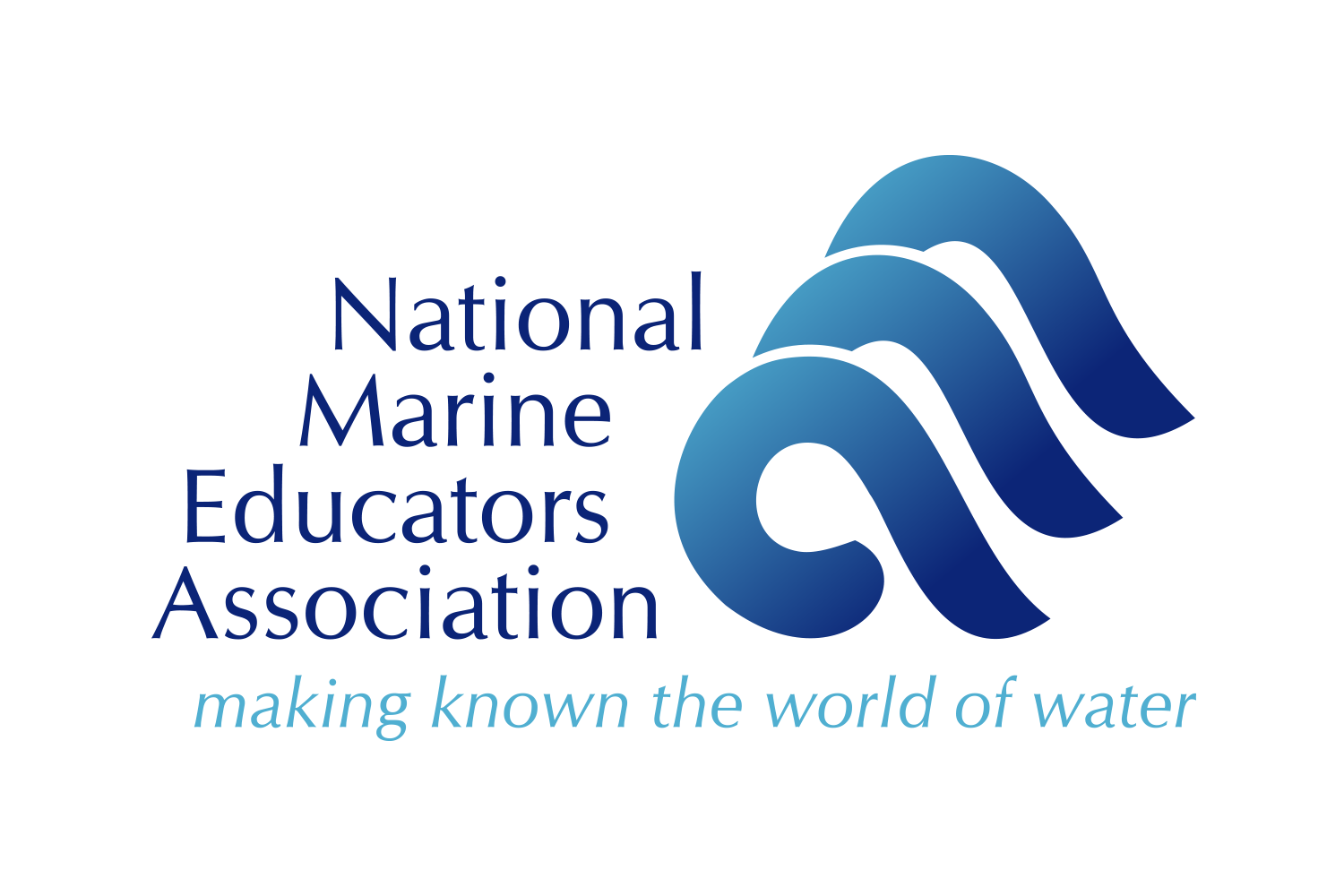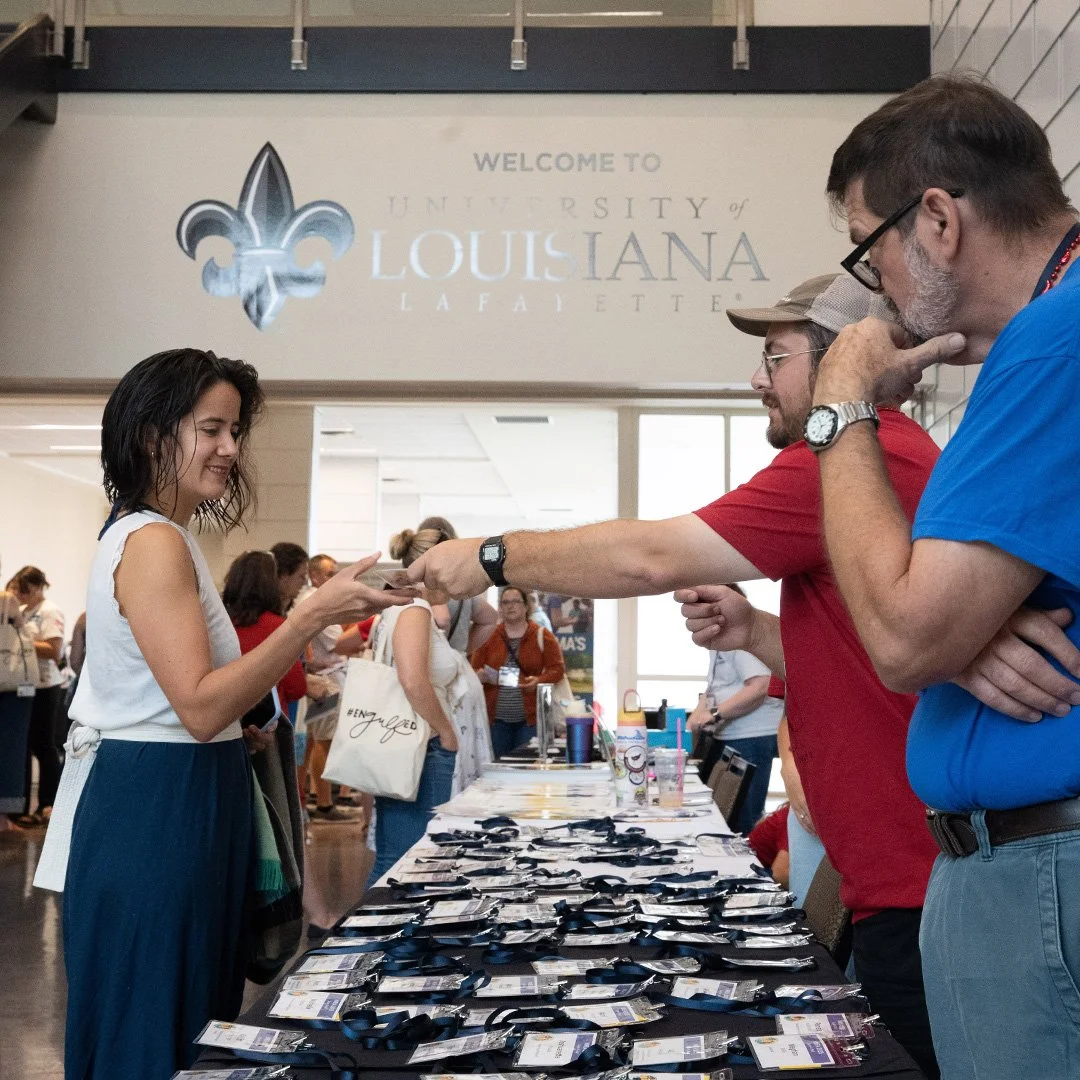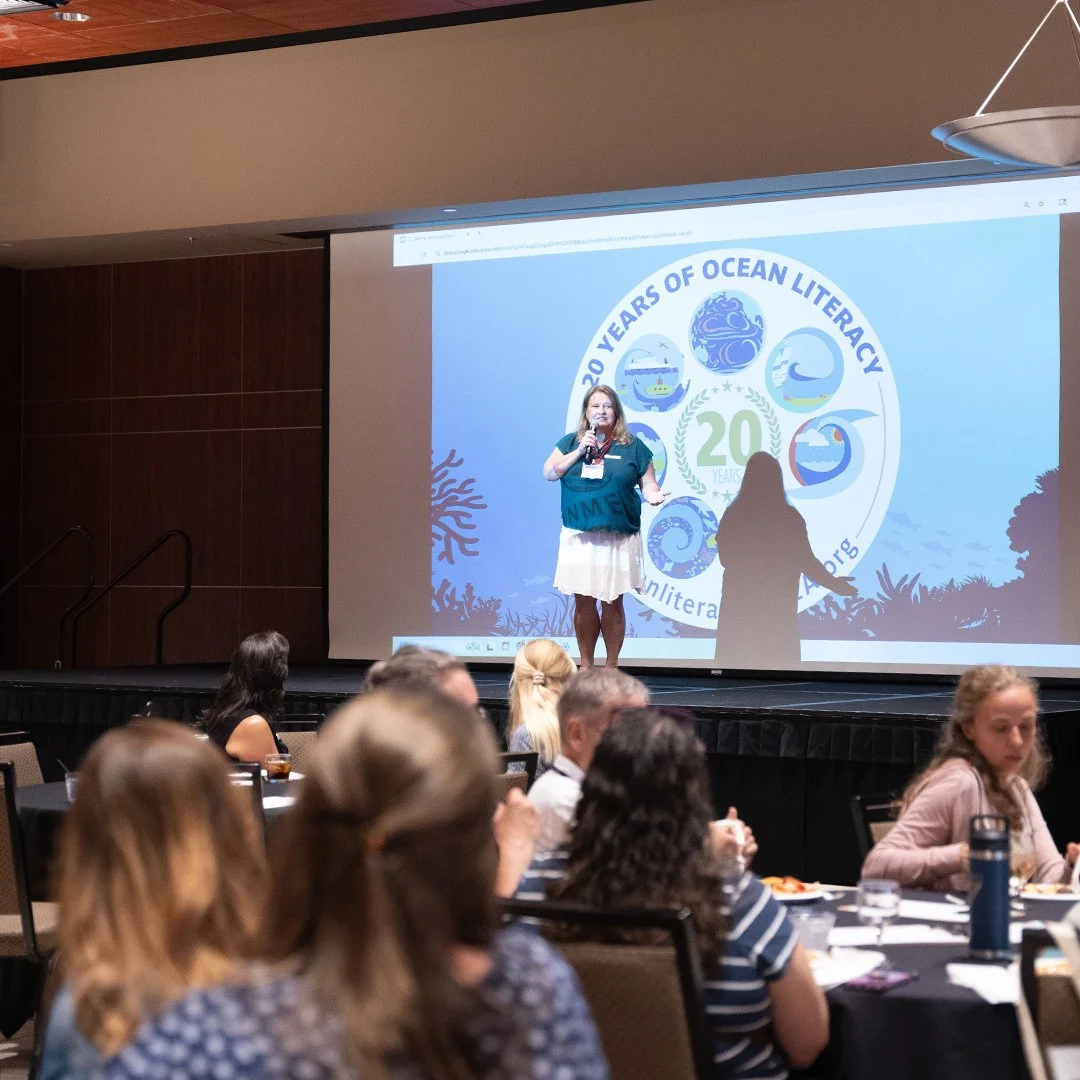Current Log: Volume 40, No. 2 - Summer 2025
Attendee looks out over the Bayou at the Vermilionville Historic Village in Lafayette. Courtesy of Zach Greenberg.
On a warm, humid morning in late June, the campus of the University of Louisiana at Lafayette was filled with new faces. Nearly 300 marine educators from around the world gathered for the 2025 National Marine Educators Association conference, “EnGULFed in Change: ROUX-ted in Resiliency.” The conference was graciously hosted by our southern chapter, the Southern Association of Marine Educators (SAME). I had the honor of attending the conference and was afforded the opportunity to meet with many of our enthusiastic and passionate educators, as well as connect in-person with many of the authors I’ve had the pleasure of working with. On the evening of June 29, 2025, educators were gathered for the reception, where they were greeted in the courtyard and student union with local cuisine and a joyous welcome ceremony.
Guests check in at the University of Louisiana at Lafayette. Courtesy of Zach Greenberg.
2025 NMEA President Tara Hicks Johnson greets attendees. Courtesy of Zach Greenberg.
Alongside the wide range of NMEA sessions and presenters, the conference featured an inspiring group of keynote speakers. Dr. Samuel Bently (LSU) presented an incredibly informative geologist’s insight into the past, present, and projected future of the Mississippi River Delta, whose evolution has immense cultural, economic, and environmental impacts. Franziska Trautmann presented her journey in forming Glass Half Full, a recycling project started in the backyard of a fraternity house that has evolved into a 3-acre glass recycling program that recycles glass into sand for coastal restoration, disaster relief, construction, and more. Dr. Tommy Michot and Les Freres Michot graced us with a beautiful traditional musical performance honoring the close connection between the Cajun people and their land. Christine Verdin, a staunch advocate for tribal communities in Louisiana and an educator dedicated to fostering environmental stewardship and cultural resilience, spoke of Traditional Ecological Knowledge, community involvement, and how both played a pivotal role in the establishment of École Pointe-au-Chien, Louisiana’s first Indigenous French immersion school.
Admittedly, I was nervous to present in the same hall as these renowned and accomplished individuals, but Kyle Halstead and I were tasked with moderating a panel of authors from the Special Issue we published with SAME earlier this year. I’d like to give a special thanks to the authors and to Kyle, who were a massive help in organizing the panel, as well as to Jean-May and Thomas Brett for sponsoring the issue. I’m immensely grateful for the opportunity to work with such talented and dedicated educators.
We’re thrilled to present Volume 40, No. 2, which includes incredible contributions from authors all over the world. You’ll hear about classroom activities teaching everything from music production for water conservation, to mammal evolution, to expanding access to “field work” through virtual programs. You’ll read about activities designed to teach the effects of temperature on dinoflagellates, programs to explore the specialized adaptations of fish, and a newly published book highlighting the incredible work that people like Kerstin Forsberg are doing to protect manta rays. We are also honored to include an article highlighting the work being done to increase Maritime Education Training in Uganda, a piece that provides excellent commentary on the international state of maritime programs.
The Current staff welcomes your feedback on this journal and its content, and we’re always welcoming new reviewers to aid us in the editing process. To contact us, please send an email to current@marine-ed.org. To submit a paper for an upcoming issue, visit current-journal.com and click on Start Submission.
Calm tides,
Zach Greenberg
Current Editor




